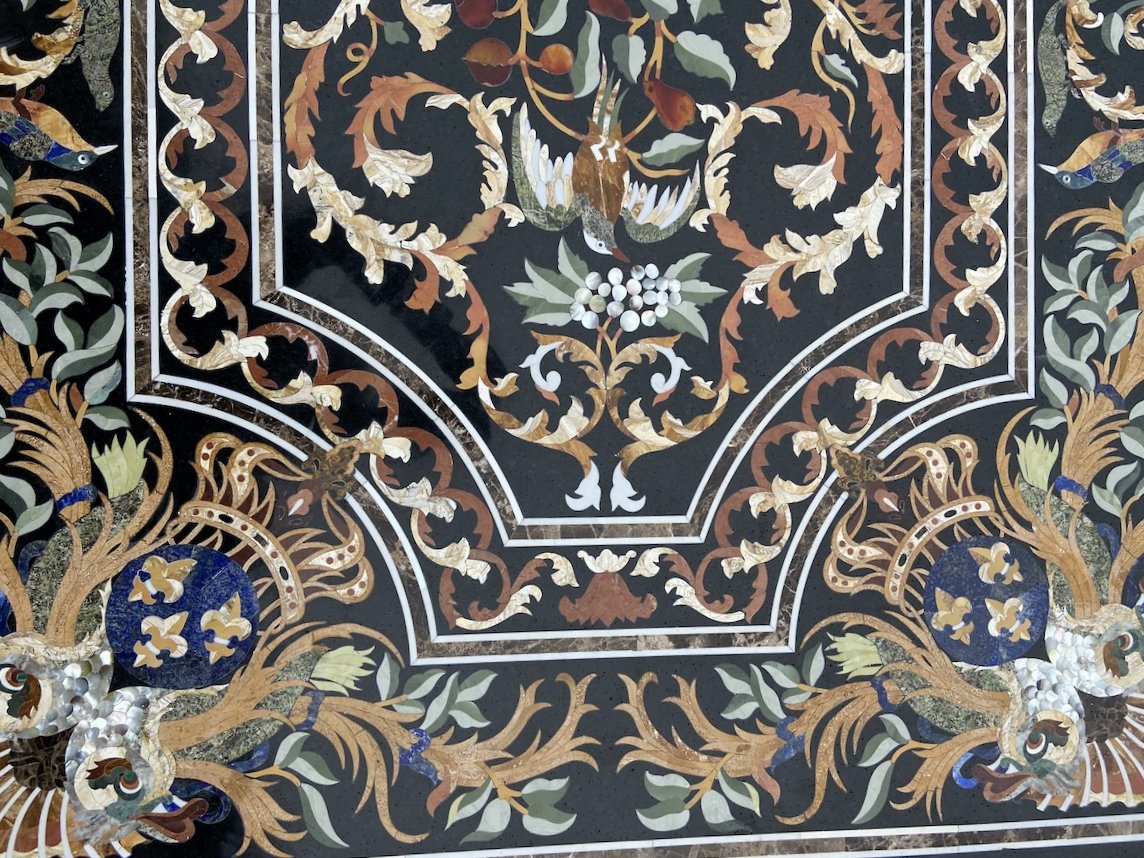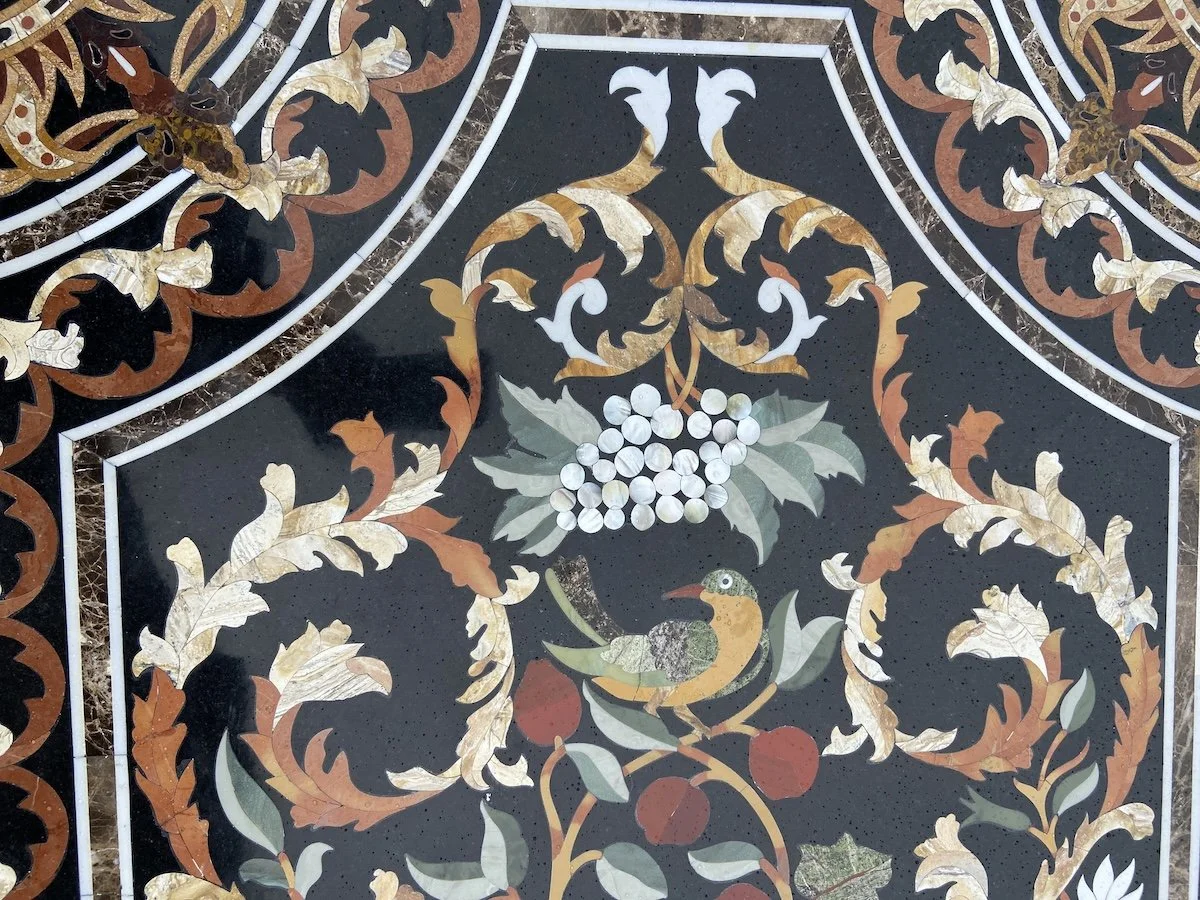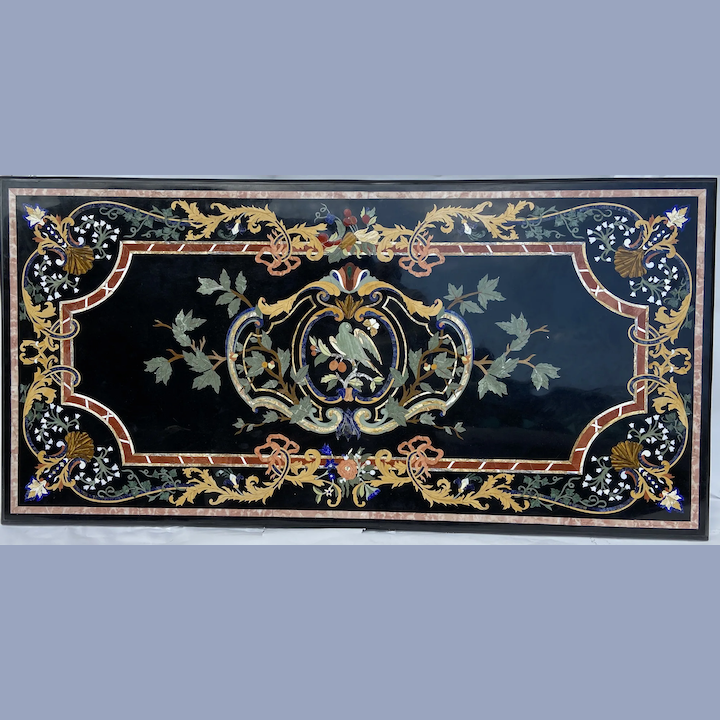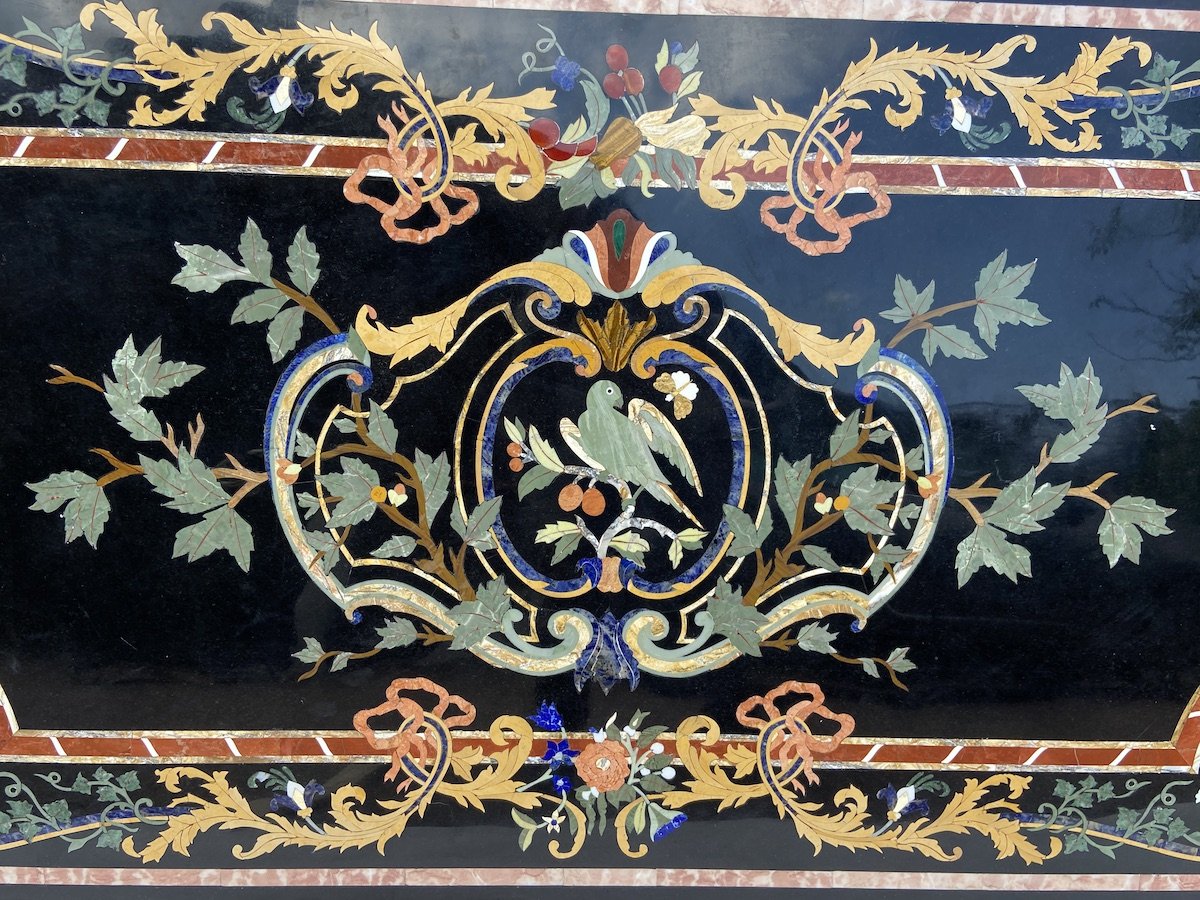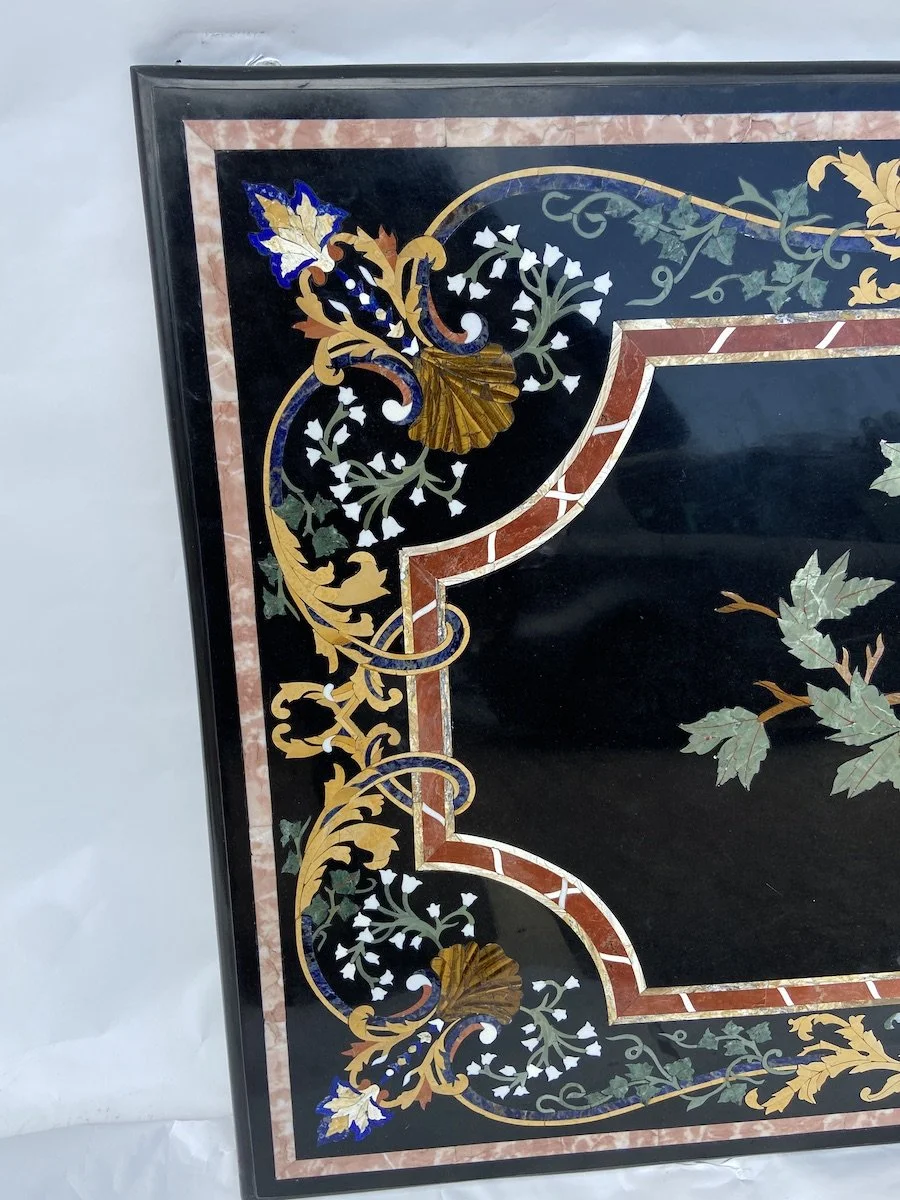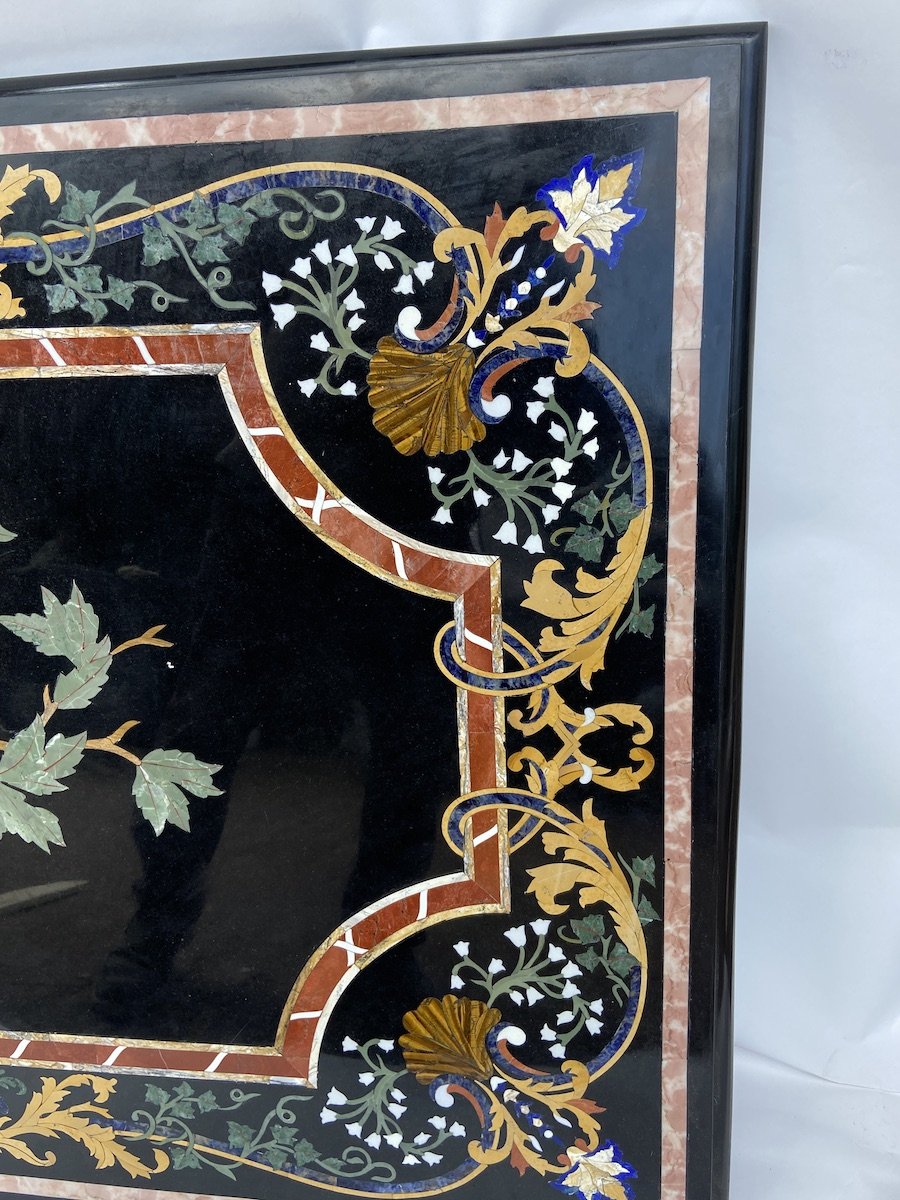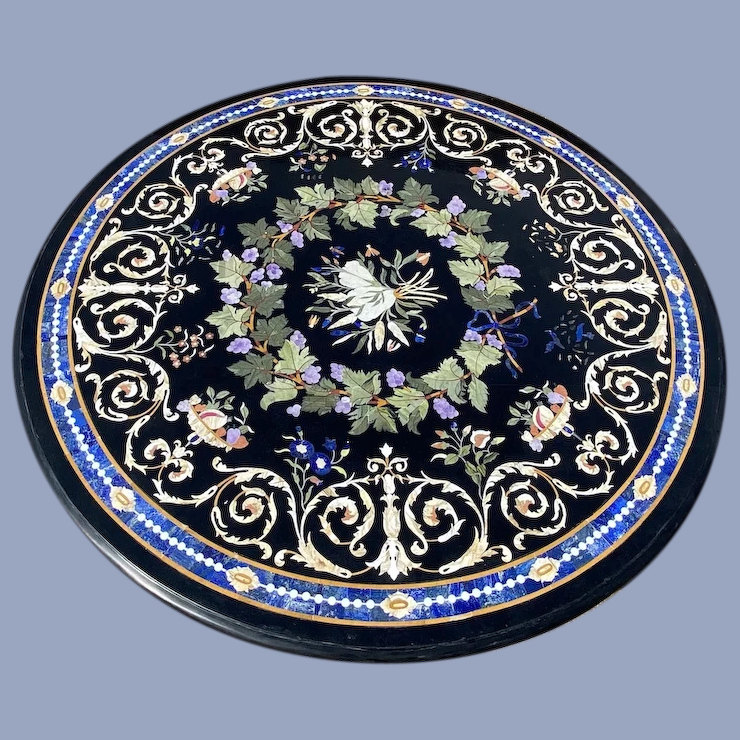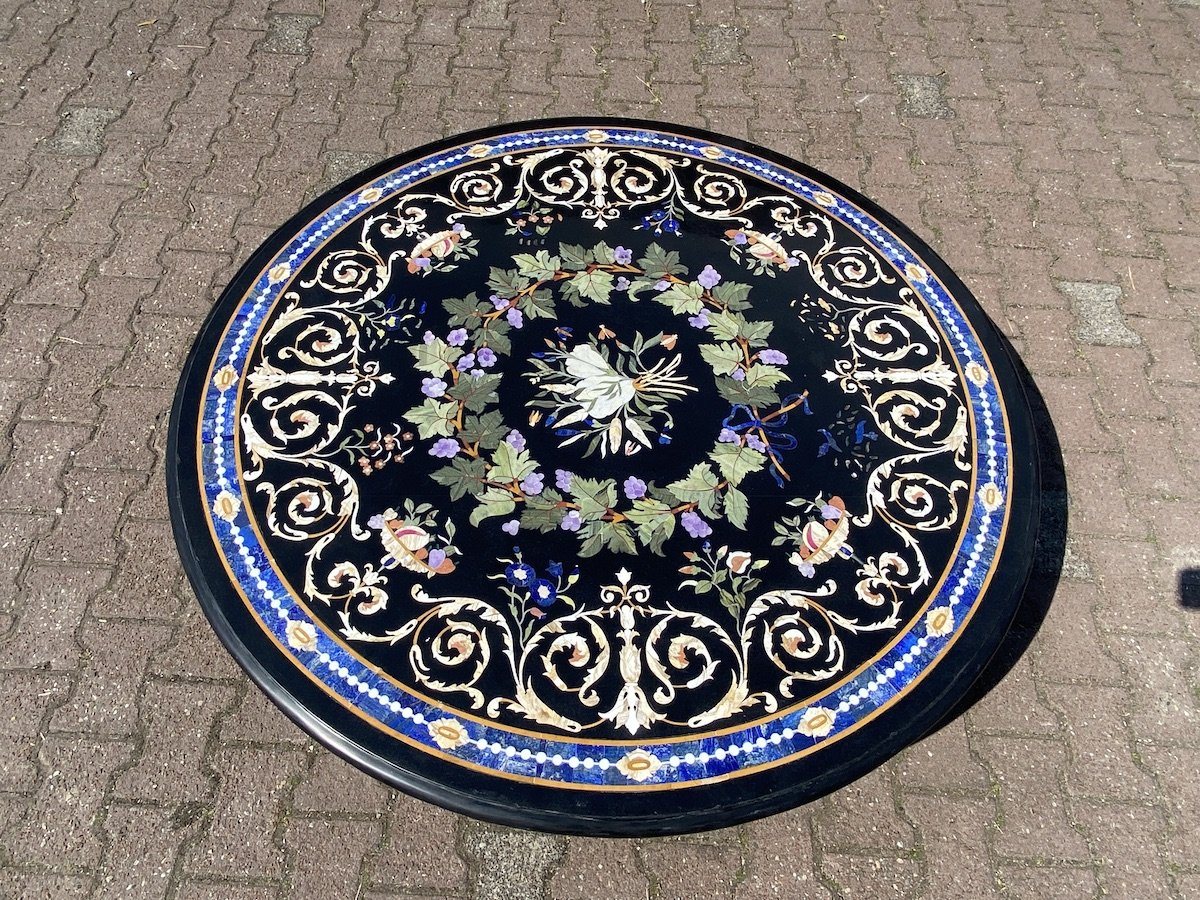 Image 1 of 18
Image 1 of 18

 Image 2 of 18
Image 2 of 18

 Image 3 of 18
Image 3 of 18

 Image 4 of 18
Image 4 of 18

 Image 5 of 18
Image 5 of 18

 Image 6 of 18
Image 6 of 18

 Image 7 of 18
Image 7 of 18

 Image 8 of 18
Image 8 of 18

 Image 9 of 18
Image 9 of 18

 Image 10 of 18
Image 10 of 18

 Image 11 of 18
Image 11 of 18

 Image 12 of 18
Image 12 of 18

 Image 13 of 18
Image 13 of 18

 Image 14 of 18
Image 14 of 18

 Image 15 of 18
Image 15 of 18

 Image 16 of 18
Image 16 of 18

 Image 17 of 18
Image 17 of 18

 Image 18 of 18
Image 18 of 18



















Italian Handmade Marble Table Top With Mosaic
For inquiries about this item, please scroll to the bottom the page: “enquire about this item”
New in our collection: handmade table top made of Italian Marble .
Natural Italian marble in neutral colors.
The table top can be used as decoration, a table top for the dining table or for example as table top for your outside dining table in the garden.
There are many purposes for this table. It is made of different kind of marble and stones.
The material used in this table top are: Mother of Pearl, Italian Levante, White onyx, Lapis Lazuli, Natural white, Natural Heated Yellow Jaisalmer, Natural tiger stone and mixed natural stone.
It is a unique piece.
The measurements of this pieces are about: 220 cm x 120 cm x 3 cm.
The measurements in inch are about: 86 inch long x 47 inch wide x 1 inch thick.
It is a very heavy piece
NOTE: This is only the table top, not the base.
This is what Sothebys said about a similar piece:
Although the design of this panel is inspired by North Italian pietre dure table tops, its overall composition, the choice of materials and their inlay point to a Neapolitan origin. Indeed, the style of this table top, with bold ornamental details and an expressive colour scheme, is closely comparable to altar fronts in Neapolitan churches and to works by the sculptor-architect Cosimo Fanzago (1591-1678), who arrived in Naples in 1608, where the market for sculptors and decorators was already vast and in continuous proliferation due to the exponential expansion of religious buildings in Naples. Descendant of an ancient family of chiselers, founders and makers of astronomical clocks, the cavalier Cosimo Fanzago, a title he earned in 1627, was born in 1591 in Clusone (Bergamo). He began his artistic activity between Milan and Bergamo but, upon his father’s death, moved to Naples where he lived with his mother and uncle, Pompeo Fanzago. Working in his early years alongside the sculptor Angelo Landi, whose daughter he married, Fanzago soon became one of the greatest sculptors and decorators of the Baroque period in Naples, with his best known work in the Church of San Martino, described in 1670 by the Roman priest Richard Lassels as "the most sumptuous thing in all Europe” [1].
The attribution of the works to Fanzago is complex, since he made use of numerous collaborators from his workshop to whom he gave freedom to make variations to his designs, he left very few original drawings, he often intervened on works already started by others or, on the contrary, others acted on works not completed by Fanzago himself. Nevertheless, the decoration by Fanzago in the Neapolitan churches of San Lorenzo Maggiore, of Santa Maria Nova and of San Martino, state a clear relationship between these and the present top, namely through the use of entwined foliate scrolls and floral branches.
Other ornamental elements can be identified between this table top and the work of Fanzago. The thin yellow ribbons are comparable to those depicted in the design of a flower vase in the Church of San Martino, on the altar of Santa Maria Nova, and in the Cacace Chapel of the Church San Lorenzo Maggiore. The mother-of-pearl dots are found in numerous designs across the murals of the Cacace Chapel, in the Church of San Lorenzo Maggiore. Although ubiquitous in his work, the thick white borders designed as a base from which protrudes flowers is reproduced in the Church of San Lorenzo Maggiore. The white flowers on the present table top are depicted across the main altar in the Church of Santa Maria Nova. Exquisitely designed birds can be seen on other table tops attributed to Fanzago sold at Sotheby's London, Treasures, 6 July 2011, lot 11 (£217,250) and at Sotheby’s New York, The Collection of Suzanne Saperstein, 19 April 2012, lot 217 ($194,500).
Additionally, the table top shares with Fanzago’s work, the generous use of giallo antico di Numidia (subsequently heated to create a red chiaroscuro effect), which he used extensively in the foliage decoration of his chapel floors and his altar fronts. Ultimately, the use of what seems to be precisely the style and hard stones found in these churches suggests that the present exceptional top was most probably the work of a skilled marble worker in Fanzago’s workshop, who may have been commissioned this table top from a local family, as the central cartouche at the centre resembling an acorn is likely an unidentified family crest.
A further related example attributed to Fanzago, besides the ones already mentioned, include a top sold at Sotheby's New York, Important Old Master Paintings and Sculptures, 26 January 2012, lot 330 (sold $86,500).
[1] Quoted by Chaney, E. The Evolution of the Grand Tour, London, 1998, pp.113.
For inquiries about this item, please scroll to the bottom the page: “enquire about this item”
New in our collection: handmade table top made of Italian Marble .
Natural Italian marble in neutral colors.
The table top can be used as decoration, a table top for the dining table or for example as table top for your outside dining table in the garden.
There are many purposes for this table. It is made of different kind of marble and stones.
The material used in this table top are: Mother of Pearl, Italian Levante, White onyx, Lapis Lazuli, Natural white, Natural Heated Yellow Jaisalmer, Natural tiger stone and mixed natural stone.
It is a unique piece.
The measurements of this pieces are about: 220 cm x 120 cm x 3 cm.
The measurements in inch are about: 86 inch long x 47 inch wide x 1 inch thick.
It is a very heavy piece
NOTE: This is only the table top, not the base.
This is what Sothebys said about a similar piece:
Although the design of this panel is inspired by North Italian pietre dure table tops, its overall composition, the choice of materials and their inlay point to a Neapolitan origin. Indeed, the style of this table top, with bold ornamental details and an expressive colour scheme, is closely comparable to altar fronts in Neapolitan churches and to works by the sculptor-architect Cosimo Fanzago (1591-1678), who arrived in Naples in 1608, where the market for sculptors and decorators was already vast and in continuous proliferation due to the exponential expansion of religious buildings in Naples. Descendant of an ancient family of chiselers, founders and makers of astronomical clocks, the cavalier Cosimo Fanzago, a title he earned in 1627, was born in 1591 in Clusone (Bergamo). He began his artistic activity between Milan and Bergamo but, upon his father’s death, moved to Naples where he lived with his mother and uncle, Pompeo Fanzago. Working in his early years alongside the sculptor Angelo Landi, whose daughter he married, Fanzago soon became one of the greatest sculptors and decorators of the Baroque period in Naples, with his best known work in the Church of San Martino, described in 1670 by the Roman priest Richard Lassels as "the most sumptuous thing in all Europe” [1].
The attribution of the works to Fanzago is complex, since he made use of numerous collaborators from his workshop to whom he gave freedom to make variations to his designs, he left very few original drawings, he often intervened on works already started by others or, on the contrary, others acted on works not completed by Fanzago himself. Nevertheless, the decoration by Fanzago in the Neapolitan churches of San Lorenzo Maggiore, of Santa Maria Nova and of San Martino, state a clear relationship between these and the present top, namely through the use of entwined foliate scrolls and floral branches.
Other ornamental elements can be identified between this table top and the work of Fanzago. The thin yellow ribbons are comparable to those depicted in the design of a flower vase in the Church of San Martino, on the altar of Santa Maria Nova, and in the Cacace Chapel of the Church San Lorenzo Maggiore. The mother-of-pearl dots are found in numerous designs across the murals of the Cacace Chapel, in the Church of San Lorenzo Maggiore. Although ubiquitous in his work, the thick white borders designed as a base from which protrudes flowers is reproduced in the Church of San Lorenzo Maggiore. The white flowers on the present table top are depicted across the main altar in the Church of Santa Maria Nova. Exquisitely designed birds can be seen on other table tops attributed to Fanzago sold at Sotheby's London, Treasures, 6 July 2011, lot 11 (£217,250) and at Sotheby’s New York, The Collection of Suzanne Saperstein, 19 April 2012, lot 217 ($194,500).
Additionally, the table top shares with Fanzago’s work, the generous use of giallo antico di Numidia (subsequently heated to create a red chiaroscuro effect), which he used extensively in the foliage decoration of his chapel floors and his altar fronts. Ultimately, the use of what seems to be precisely the style and hard stones found in these churches suggests that the present exceptional top was most probably the work of a skilled marble worker in Fanzago’s workshop, who may have been commissioned this table top from a local family, as the central cartouche at the centre resembling an acorn is likely an unidentified family crest.
A further related example attributed to Fanzago, besides the ones already mentioned, include a top sold at Sotheby's New York, Important Old Master Paintings and Sculptures, 26 January 2012, lot 330 (sold $86,500).
[1] Quoted by Chaney, E. The Evolution of the Grand Tour, London, 1998, pp.113.











